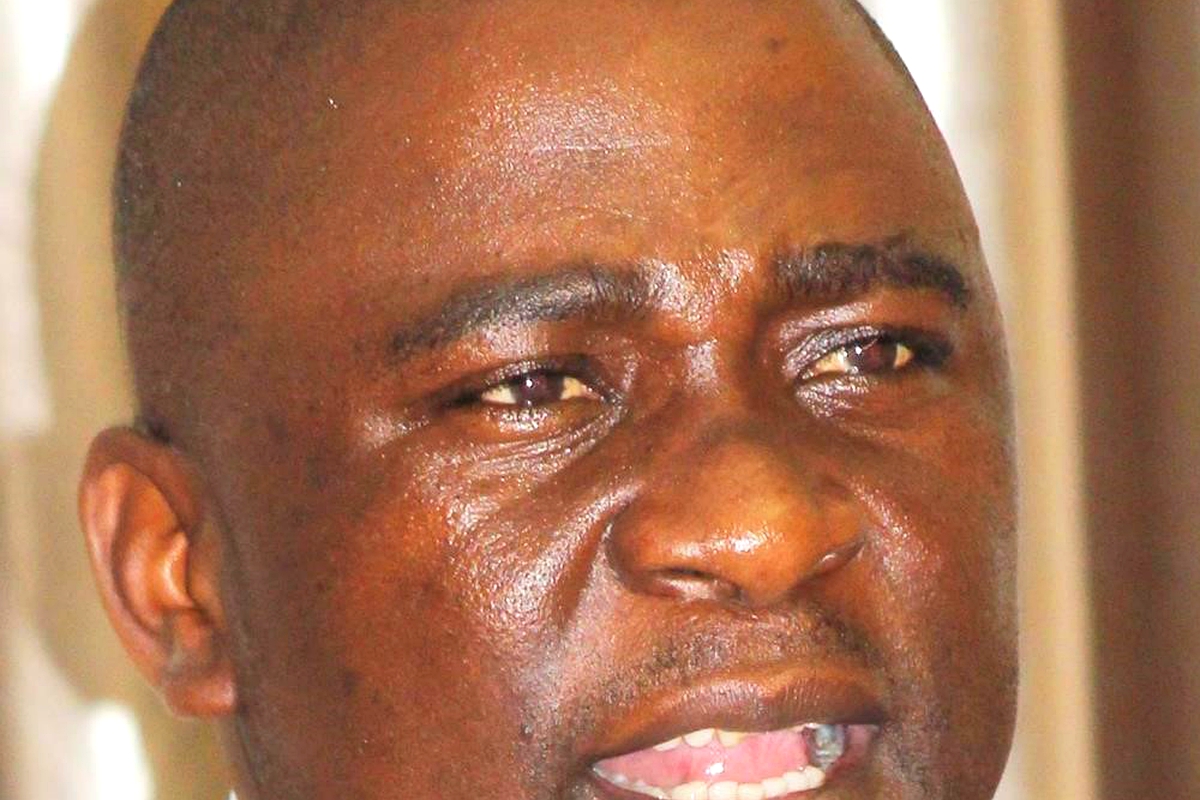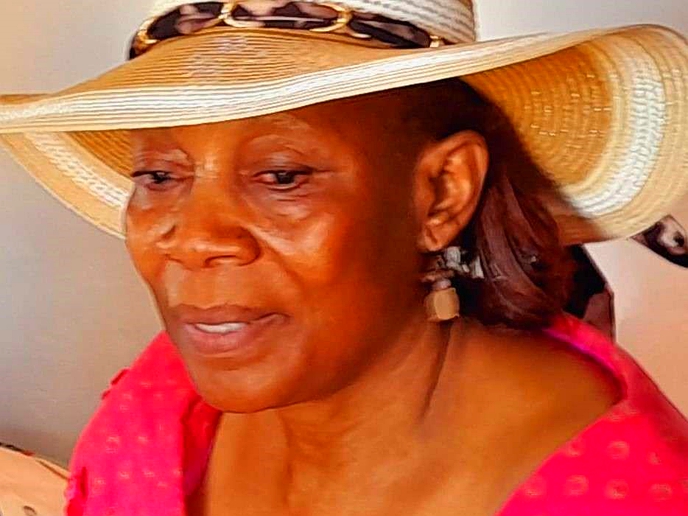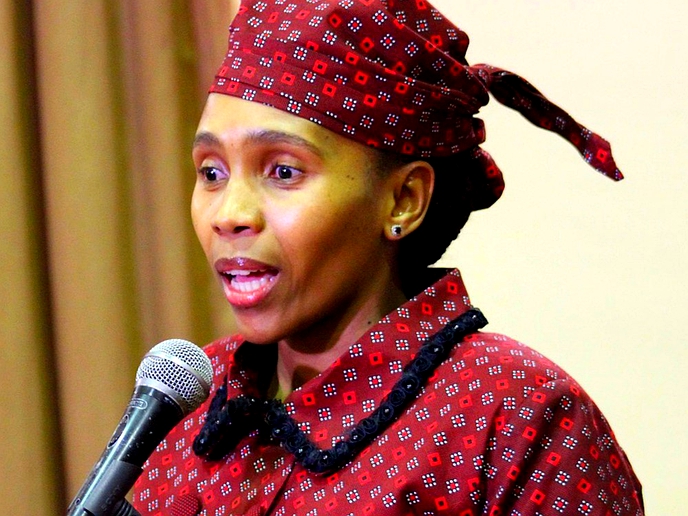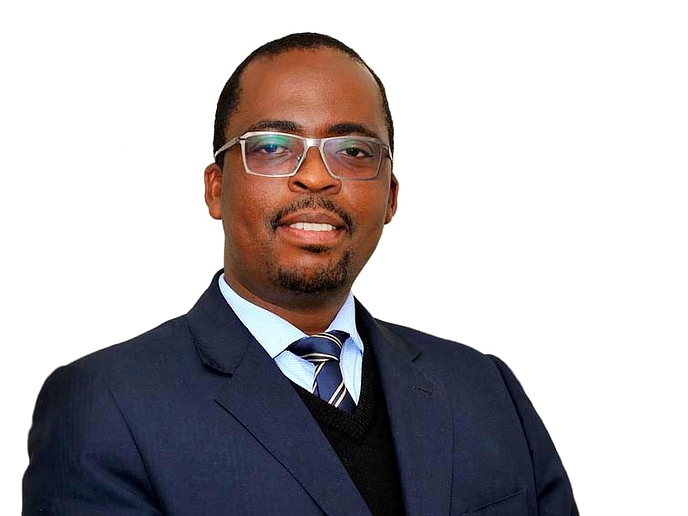BASOTHO girls have been advised to seize the grab opportunity of getting vaccinated against cervical cancer when the second jab of the Human Papilloma Virus (HPV) injection will be offered later this month.
health
Feb. 6, 2024
'MATHATO SEBOKA
5 min read
Girls urged to vaccinate for cervical cancer

Minister of Health, Selibe Mochoboroane
Story highlights
The first jab was administered to local girls aged between nine and 14 from December last year and January this year.
The Minister of Health, Selibe Mochoboroane, and his Education and Training counterpart, Professor Ntoi Rapapa, made the appeal during a press conference that was held in Maseru last week.
Mochoboroane said the first vaccination was a two-dose injection, adding that the next one include just one dose.
Unlike the first vaccine, the second phase will be administered to girls aged between nine and 18.
It is estimated that about 541 women are diagnosed with cervical cancer in Lesotho every year, and 362 (87%) of them die from the disease.
“A health expert, Dr. Richard Banda, says one dose of the vaccine is enough to set the body of a girl to protect itself against the Human Papilloma Virus,” said Mochoboroane.
“We are working together with the Ministry of Education in order for the health department staff to go to local schools to vaccinate the children starting next week (this week).”
According to Mochoborone, health experts show that people living with HIV/AIDS have high chances of being diagnosed with cervical cancer.
Statistics show that in 2020, 100,000 women developed cervical cancer in Africa, and approximately 70,000 of them women died.
“In 2022, a total of 606 cases of cancer were recorded, and 300 of them were cervical cancer cases. As the Ministry of Health, we have realised that prevention is better than cure.
“So our first step is to prevent; hence why, the second stage of the HPV vaccine is underway.”
For his part, Rapapa pledged their preparedness to start working hand in hand with the Ministry of Health.
“The government is committed through the Ministries of Health, and Education, along with other relevant ministries to reducing the incidence of cervical cancer among our girl children,” he said.
“I strongly encourage parents, school management, teachers, constituency candidates, area chiefs, and everyone else involved to join hands so that this job can be successful.”
Rapapa said they would work with the Ministry of Health at the central and district levels to support the ministry’s District Health Management Teams (DHMTs) by identifying unvaccinated girls in schools.
He said they would conduct learning-related demand generation activities such as essay writing on HPV and cervical cancer in schools.
Dr. Banda, who is the World Health Organisation's (WHO) Representative in Lesotho, said the number of women diagnosed and dying of cervical cancer in Lesotho remains high.
He said it is imperative to note that outside of the emotional and physical trauma that cervical cancer causes, it also causes a huge financial burden to the people who are affected, the government, and the entire population.
“Let me emphasise that we have a cost-effective and effective way to prevent cervical cancer, and that is HPV,” said Dr. Banda.
“We are here with the aim of making cervical cancer elimination in Lesotho a reality.”
Dr. Banda said WHO recommended HPV vaccination for girls as a core strategy for the prevention of cervical cancer. He said the WHO global strategy for cervical cancer elimination by 2030 goes to all countries to vaccinate at least 90% of girls against HPV by the age of 15.
“We have a huge agency in Lesotho to address gaps in vaccination, screening for cervical cancer, and cancer treatment.
“All women and girls must claim this right because women and girls are essential to the development of Lesotho.
“We would like to highlight that HPV vaccines are safe with more than 200 million doses given globally, and there is no major side effect that has been reported. I must commend the government of Lesotho for scaling up cancer screening through facilities that are taking that initiative. I also understand that cancer screening sites are currently being established,” Dr. Banda said.
Enjoy our daily newsletter from today
Access exclusive newsletters, along with previews of new media releases.
HPV infection is a major cause of cervical cancer, the fourth most common cancer in women worldwide.
Approximately 99.7% of cervical cancers are caused by infection with the so-called high-risk types of HPV.
According to a 2023 WHO report, about 70 000 cervical cancer deaths could be averted annually in the African region if the efforts to end the disease by 2030 are urgently stepped up to ensure increased access to critical services for timely detection, care and prevention.
The report further shows that, currently, 26 countries in Africa have introduced the human papilloma virus vaccine and only 31% of girls by the age of 15 received the first of the vaccine on the continent in 2022.
Just 16 countries have introduced human papilloma virus-based screening at the sub-national level.
“To meet the 2030 global targets, vaccination coverage should reach 90% of women and girls in 20 countries by 2024; and in at least 10 countries, national screening rates should reach 25% of women aged 30-49 years; and treatment rate increased to 25% in these countries.”
Tailored for you






